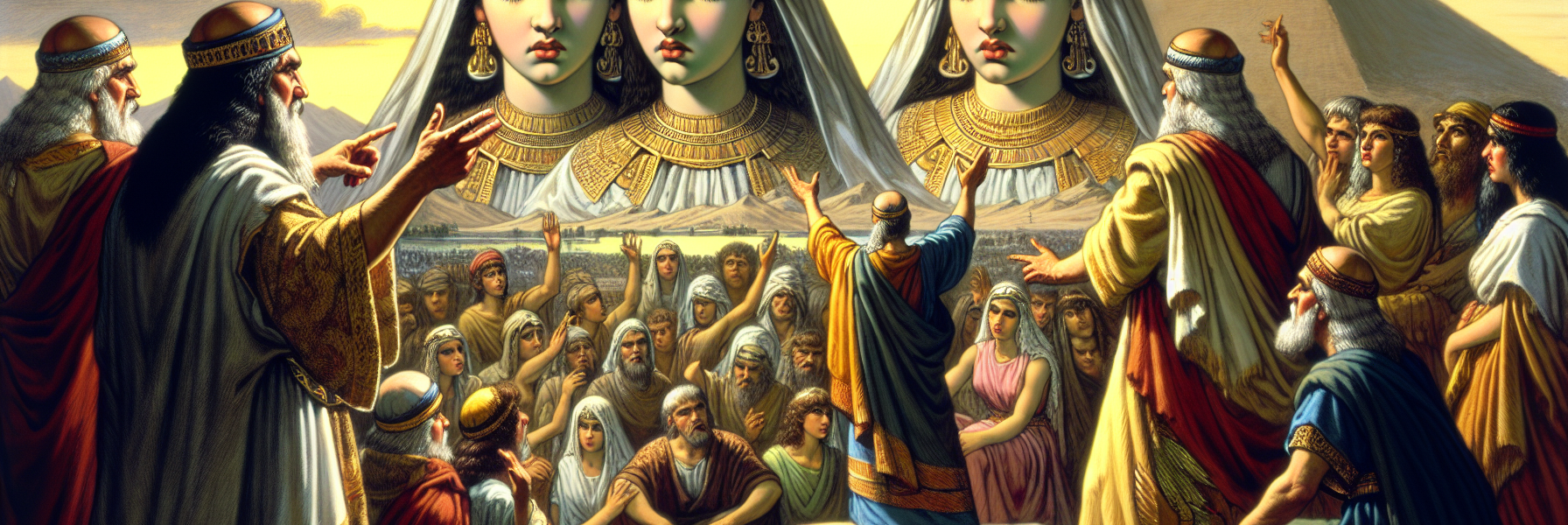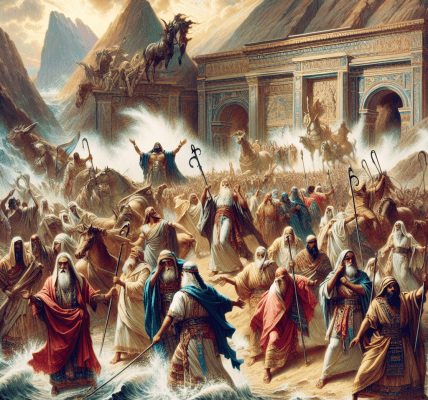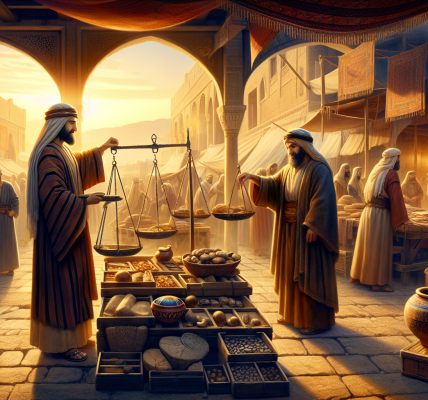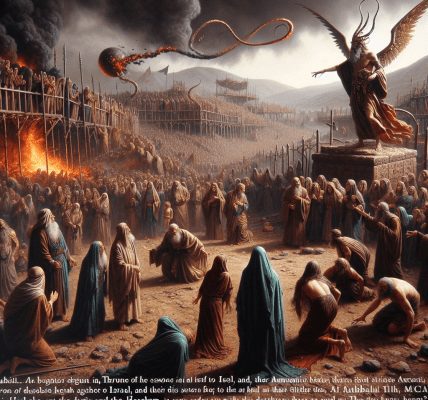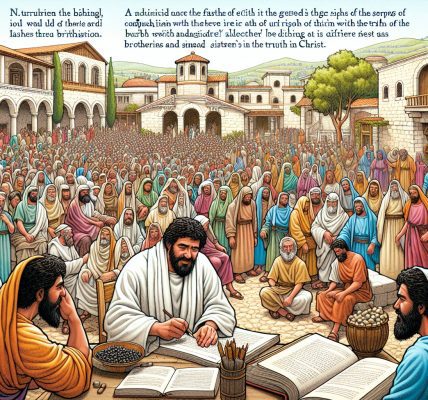**The Tale of Two Sisters: Oholah and Oholibah**
In the days when Israel and Judah had turned away from the Lord, the word of the Almighty came to the prophet Ezekiel, revealing a parable of two sisters—a story of betrayal, idolatry, and divine judgment. The Lord commanded Ezekiel to speak this parable to the rebellious house of Israel, that they might understand the depth of their unfaithfulness.
### **The Two Sisters and Their Early Days**
There were once two sisters, daughters of the same mother. The elder was named Oholah, which means “her own tent,” and the younger was called Oholibah, meaning “my tent is in her.” These sisters grew up in the land of Egypt, where they were nurtured in youth but also exposed to the corruptions of the pagan world. In their early days, they were beautiful and full of promise, but as they matured, their hearts turned toward wickedness.
Oholah represented Samaria, the capital of the northern kingdom of Israel, and Oholibah stood for Jerusalem, the heart of Judah. Though they belonged to the Lord, who had brought them out of Egypt and pledged Himself to them as a husband, they soon forgot His love and sought after other lovers.
### **Oholah’s Harlotry with Assyria**
Oholah, the elder sister, gave herself to the Assyrians, lusting after their young warriors—handsome horsemen clothed in fine blue, riding mighty steeds. She was captivated by their power and splendor, and in her obsession, she defiled herself with their idols. She offered sacrifices to the gods of Assyria, burning incense before carved images, forgetting that she was the Lord’s chosen.
Yet the very nation she adored became her destroyer. The Assyrians, whom she had trusted and loved, turned against her. They slaughtered her sons and daughters, stripping her bare and dragging her away in chains. Oholah became a byword among the nations—a warning of what befalls those who forsake the Lord.
### **Oholibah’s Greater Corruption**
But Oholibah, the younger sister, saw what had happened to Oholah and did not repent. Instead, she sank even deeper into depravity. At first, she too lusted after the Assyrians, admiring their strength and nobility. But soon, her desires grew even more insatiable. She turned her eyes toward the Babylonians, men whose robes were crimson, whose belts were adorned with gold—warriors riding proud steeds, more alluring than any before.
She sent messengers to them in Chaldea, inviting them to come to her. When they arrived, she reveled in their embraces, painting her eyes and adorning herself with jewels to entice them. Yet even this was not enough. She remembered the days of her youth in Egypt, where men had lain with her in their wantonness, and her heart burned again for those old lovers. She longed for the Egyptians, whose bodies were like those of donkeys, whose emissions were like those of horses.
In her madness, she returned to them, defiling herself with their idols and sacrificing to their gods. She said in her heart, *”These are my lovers; they satisfy me.”* But the Lord saw her wickedness and declared that her cup of abominations was full.
### **The Judgment of Oholibah**
Because Oholibah had wallowed in filth and refused to turn from her ways, the Lord raised up against her all the lovers she had trusted. The Babylonians, the very men she had adored, would come with a host of warriors—princes, commanders, and mighty men of war. They would strip her naked, seize her children, and put them to the sword. They would burn her houses and stone her in the sight of many.
The Lord declared:
*”Because you poured out your lust and exposed your nakedness in your promiscuity with your lovers, and because of all your detestable idols, I will stir up your lovers against you, and they will deal with you in hatred. They will cut off your nose and your ears, and your survivors will fall by the sword. They will take away your sons and daughters, and you will be consumed by fire.”*
The nations would see her punishment and shudder, knowing that the Lord is just.
### **The Cup of Wrath**
Ezekiel proclaimed that both sisters had drunk from the same cup of idolatry, and now they would drink from the cup of the Lord’s fury. The cup of horror and desolation would be placed in their hands, and they would drain it to the dregs. They would tear at their own breasts in anguish and wail, but none would pity them.
For they had broken the covenant of the Lord, defiled His sanctuary, and mocked His holiness. Therefore, He would purge the land of their filth, that all might know He is the Sovereign God.
### **The Lesson for Israel**
The Lord commanded Ezekiel to declare to the people:
*”Thus says the Lord God: You will drink your sister’s cup, a cup deep and wide. It will bring scorn and derision, for it holds much. You will be filled with drunkenness and sorrow. The cup of ruin and desolation will leave you broken, and you will tear out your hair in despair. So I will put an end to lewdness in the land, that all women may take warning and not imitate your abominations.”*
Thus, the parable of Oholah and Oholibah stood as a solemn warning—a reminder that the Lord is a jealous God, who will not share His glory with idols. Those who forsake Him for the pleasures of the world will find only desolation in the end. Yet even in judgment, His desire was not destruction but repentance, that His people might turn back to Him and live.
And so the word of the Lord through Ezekiel echoed through the ages: *”You will know that I am the Sovereign Lord.”*
